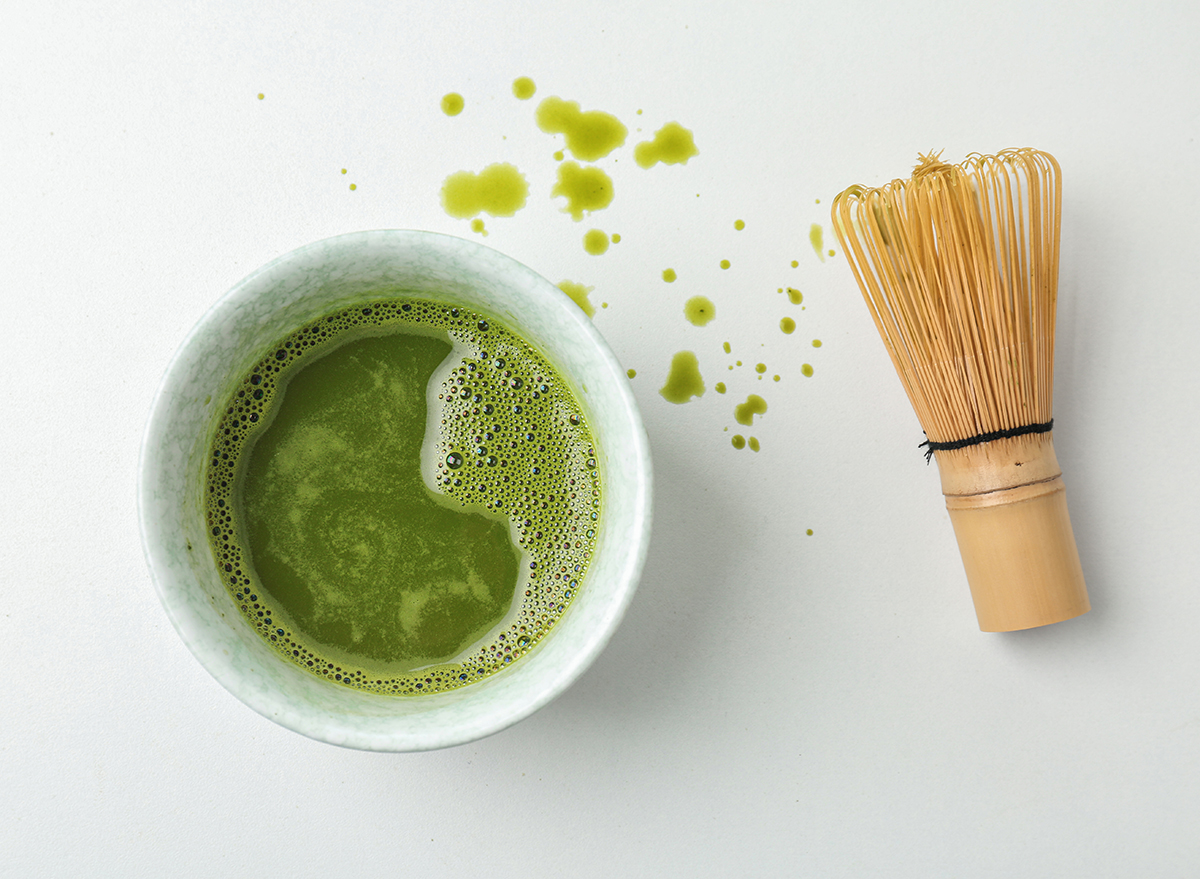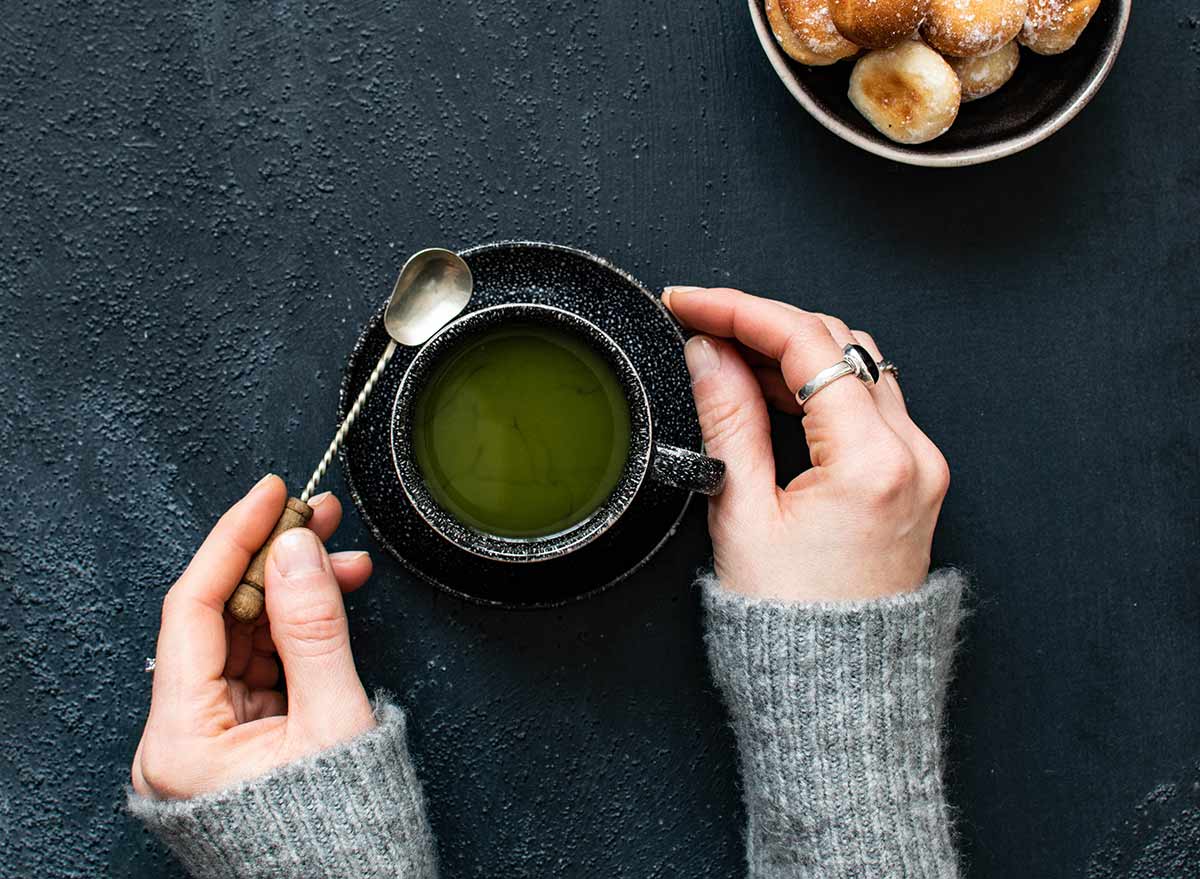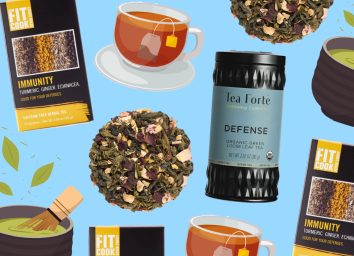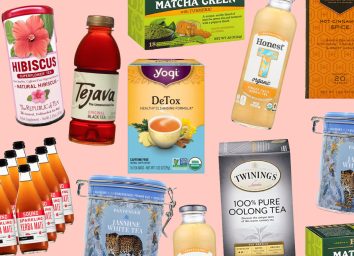How often do you make a cup of tea? Many Americans prefer to start their morning off with a cup of coffee to help them, well, wake up. Some may even opt for an afternoon tea, as well for that second—but more gentle—surge of energy midday. The question is, which tea d do you choose to drink?
There is no wrong answer here, by the way. Tea is one of the best beverages you can drink on a regular basis. Whether you choose a calming herbal variety, such as chamomile or lavender, to sip on before bed, or a more caffeinated option (like a creamy Earl Grey) to help you power through the rest of the workday—you truly can't go wrong.
Still, there's one tea that you've likely heard about on many occasions but maybe haven't been brave enough to step outside of your comfort zone and try. The tea we're referring to doesn't isn't a loose leaf option, nor does it come pre-packaged in a sachet. No, the top tea to drink we're talking about (drum roll, please) comes in the form of a powder: matcha.
Here's why matcha is considered the top tea to drink, and for even more healthy tips, be sure to check out our list of The 7 Healthiest Foods to Eat Right Now.

What is matcha?
There are two types of matcha, ceremonial and culinary, both of which are made from finely ground green tea leaves. Which means it's packed with antioxidants. Ceremonial is the version you'd buy if you're looking for looking to make a cup of tea or a latte, whereas culinary is the version you'd use to make a matcha-flavored cake, for example.
You know you have a good cup of matcha by both its color as well as mouthfeel. As Anna Kavaliunas, holistic coach and co-author of Matcha: A Lifestyle Guide, previously told us in a former article, "the higher quality the tea, the sweeter and smoother it is. Your matcha should be a vibrant green color, and it should taste good."
"Unfortunately, there is no regulation surrounding the use of the word matcha or ceremonial, so make sure you are buying from a trusted source," she added.
So, what makes matcha so special? Well, according to Kavaliunas, it contains about 140 times more of an important polyphenol called EGCG than normal green tea. What is EGCG, exactly? A recent study suggests that the compound may be able to suppress cancerous tumors as well as repair damaged DNA. Other research has suggested the polyphenol can also help the body fight autoimmune diseases.
One analysis of 15 studies revealed that drinking matcha may even help people reduce their risk of developing liver disease. So, have we convinced you to at least give the beverage a try? Who knows, maybe you'll even make it a daily habit.
Now, don't miss One Major Side Effect of Drinking Green Tea.









